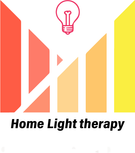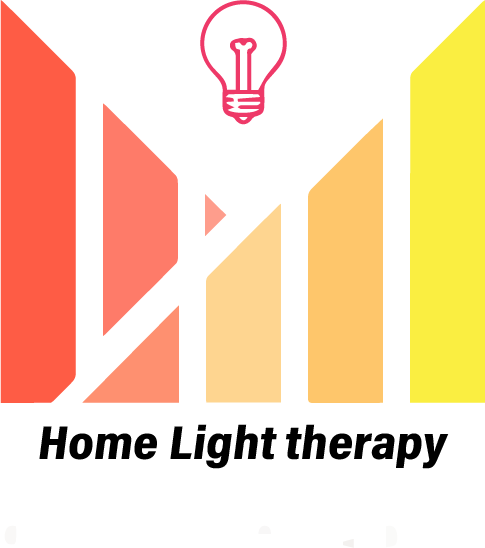
Red Light Therapy for Hair Growth: Research Insights | Home Light Therapy
Share
Can Red Light Therapy Support Hair Growth? Here's What the Research Shows
Published: May 8, 2025
Red light therapy for hair growth and hair maintenance is getting popular as a natural and non-invasive tool for supporting scalp health. There are many companies popping up selling all sorts of caps (some cheaper than others). But what exactly does the research say? Are there particular wavelengths, pulsing frequencies, or energy levels that matter?
Let’s have a look and break down the findings from human, animal, and in-vitro studies. Why do we use such a broad range of studies - because that is what we have. Without big pharmaceutical money funding research, the frequency and breadth of research can sometimes be small and infrequent. The devices used varied, but most employed LEDs or low-level lasers in the red and near-infrared spectrum—specifically between 630nm and 940nm.
These papers all showed positive results:
Key Research Overview
| Study | Model | Wavelengths | Frequency | Duration per session | Total duration | Pulse Frequency | Energy Dose |
|---|---|---|---|---|---|---|---|
| Lanzafame 2013/14 | Human | 655 nm | 3.5x/week | 25 min | 16 weeks | Continuous | ~4 J/cm² |
| Kim 2013 | Human | 630–660 nm | Daily | 18 min | 24 weeks | Continuous | Not specified |
| Jimenez 2014 | Human | 655 nm | 3x/week | ~11 min | 26 weeks | Continuous | Not specified |
| Suchonwanit 2019 | Human | 660 nm | 3x/week | 19 min | 24 weeks | Pulsed (4.2 Hz) | 4 J/cm² |
| Saleh 2006 | Human | 904 nm | 1x/week | N/A | 4 weeks | Pulsed (40 Hz) | Not specified |
| Kim 2015 | Rat | 632–830 nm | 3.5x/week | N/A | 8 sessions | Continuous | 1.27–1.91 J/cm² |
| Cao 2012 | Mouse | 655 nm | 3x/week | 20 sec | 6 weeks | Continuous | Low |
| Yang 2021 | In vitro | 650 nm | Daily | 10 min | 6 days | Continuous | 1.4 J/cm²/day |
| Joo 2017 | In vitro | 660 nm | Daily | Variable | Single dose | Continuous | 1–4 J/cm² |
What Can We Learn From This?
Most positive studies used wavelengths in the 630–660nm range, with several incorporating deeper near-infrared light (850nm, 904nm). These match closely with the hats available in my store, including:
- 660/850nm hat – for dual-action targeting
- 660/850/940nm hat – for deeper penetration and anti-inflammatory effects
- 810nm-only hat – aimed at mitochondrial stimulation
- 670/810nm hat – for a surface and subdermal blend
Energy doses ranged from 1 to 5 J/cm² per session, with use frequencies between 3x per week and daily. Many studies showed improvements in hair density, thickness, and scalp blood flow over 12 to 26 weeks. Continuous light was more common, but pulsed light—especially at 4.2 Hz and 40 Hz—also showed promise, possibly by mimicking natural rhythms or enhancing mitochondrial activity.
Ignore the companies claiming that their hats are emitting light strength of over 100mw/cm2, that is false. It is important to realise that it is false because otherwise you will get the "wrong dose" and thinking you are getting something that you are not. I have been importing and selling light therapy products for over 5 years and I know the manufacturers and products. Be mindful many of the hats on sale in Norway are 110-120 LEDs compared to the even coverage of the 180 LEDs available in the new triple wave hat at Home Light Therapy.
Explore our full range of portable and specialist devices for hair and scalp health.
How Should You Apply This?
If you're using a therapy hat (from me or someone else), aim for 15–30 minutes per session, 3–5 times per week (the exact measurements will depend on some variables which will be contained in your personal program so you know how much time to use to optimise the chances of success. Some of the hats at Home Light Therapy support pulsing modes like 10 Hz or 40 Hz, both of which have been tested in human research and could improve outcomes by enhancing circulation or neurological function.
Keep in mind: not all energy reaches the scalp. Hair—especially dark or thick hair—absorbs or reflects part of the light. Since research targets around 5 J/cm² at the scalp, you might need longer sessions to compensate for that energy loss. This is an example of the information that is important to know when using red light therapy.
The takeaway? There’s no one-size-fits-all dose, but the evidence supports red and near-infrared light as useful tools for improving hair density and scalp health. What matters most is using the right wavelengths, energy, and frequency—consistently.
Discover the Therapy Hat for Hair Loss & Brain Stimulation to start your journey, or contact me at +47 95147478 for personalized advice.
Written by: Home Light Therapy
www.lighttherapy.no
English blog
Norwegian blog
References
-
Lanzafame, R. J., Blanche, R. R., & Bodian, A. B. (2013/2014). The growth of human scalp hair mediated by visible red light laser and LED sources in males. Lasers in Surgery and Medicine, 46(8), 601–607.
-
Kim, W. S., Calderhead, R. G., et al. (2013). Low-level light therapy using LED for hair regrowth in patients with androgenetic alopecia: A randomized, double-blind, sham device-controlled multicenter trial. Lasers in Surgery and Medicine, 45(8), 491–497.
-
Jimenez, J. J., Wikramanayake, T. C., et al. (2014). Efficacy and safety of a low-level laser device in the treatment of male and female pattern hair loss: A multicenter, randomized, sham device-controlled, double-blind study. American Journal of Clinical Dermatology, 15(2), 115–127.
-
Suchonwanit, P., Rojhirunsakool, S., & Khunkhet, S. (2019). A randomized, evaluator-blinded, split-scalp study comparing the efficacy of low-level laser therapy at different wavelengths in the treatment of androgenetic alopecia. Journal of Cosmetic and Laser Therapy, 21(2), 118–122.
-
Saleh, H. M., & Khedr, A. E. (2006). Treatment of alopecia areata with pulsed infrared laser therapy. Lasers in Medical Science, 21(1), 36–40.
-
Kim, S. S., Lee, H. I., et al. (2015). Effects of light-emitting diode irradiation on the hair growth of C57BL/6 mice. Yonsei Medical Journal, 56(1), 195–202.
-
Cao, L., Zhang, Y., et al. (2012). Red light promotes hair growth in mice via stimulation of hair follicle stem cells. Scientific Reports, 2, Article number: 678.
-
Yang, C. C., Cheng, Y. Y., et al. (2021). Photobiomodulation at 650 nm enhances proliferation and migration of dermal papilla cells. Journal of Photochemistry and Photobiology B: Biology, 216, 112145.
-
Joo, H. J., Kang, J. S., et al. (2017). Photobiomodulation with 660 nm and 830 nm light-emitting diodes promotes hair growth by increasing proliferation of human dermal papilla cells. International Journal of Molecular Sciences, 18(8), 1804.

